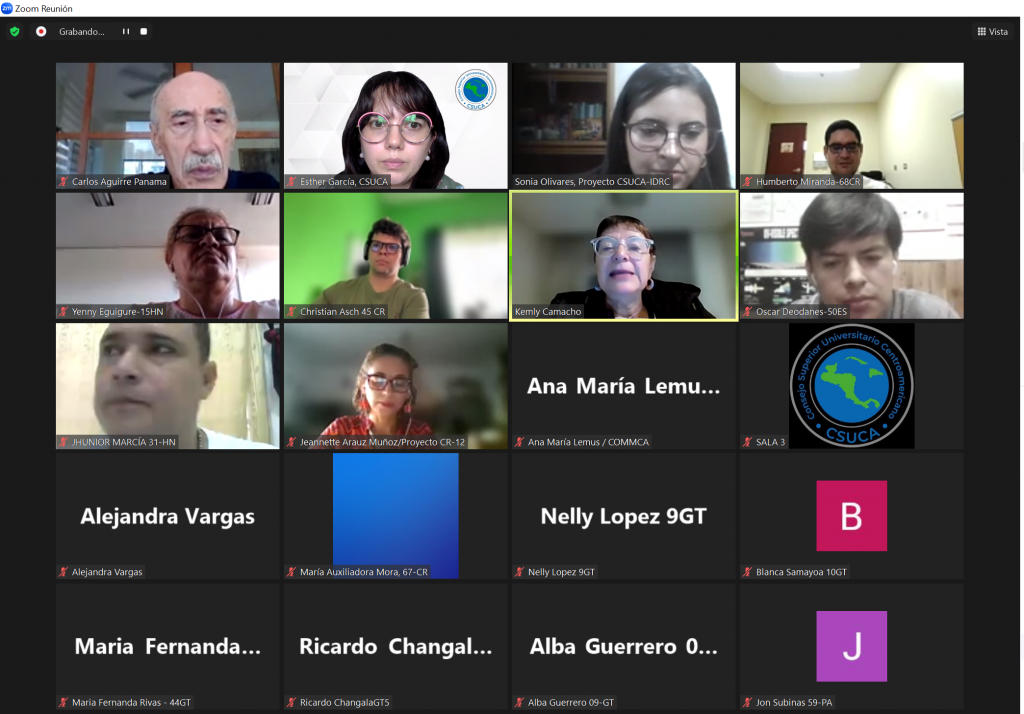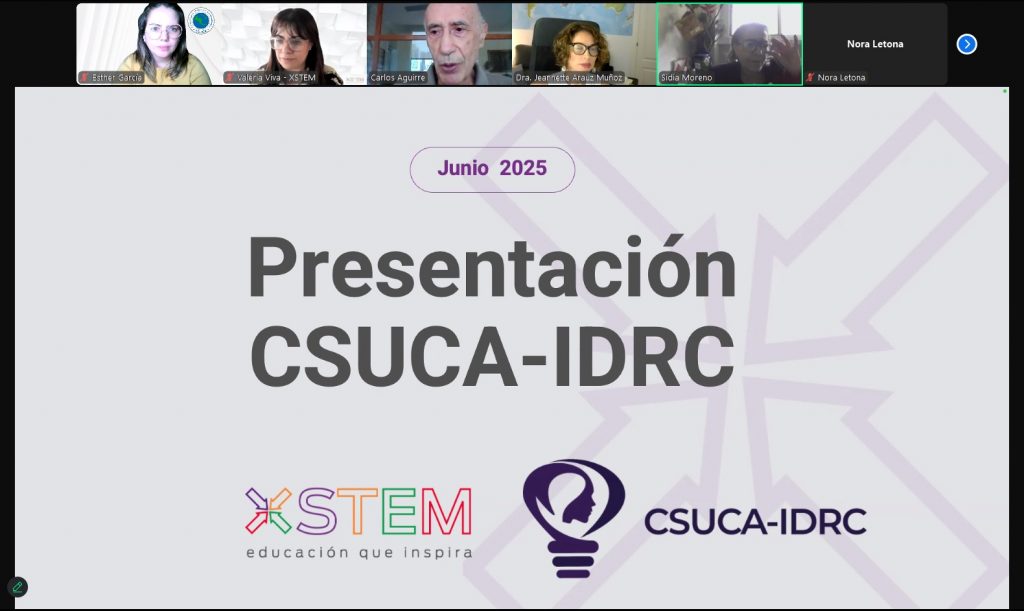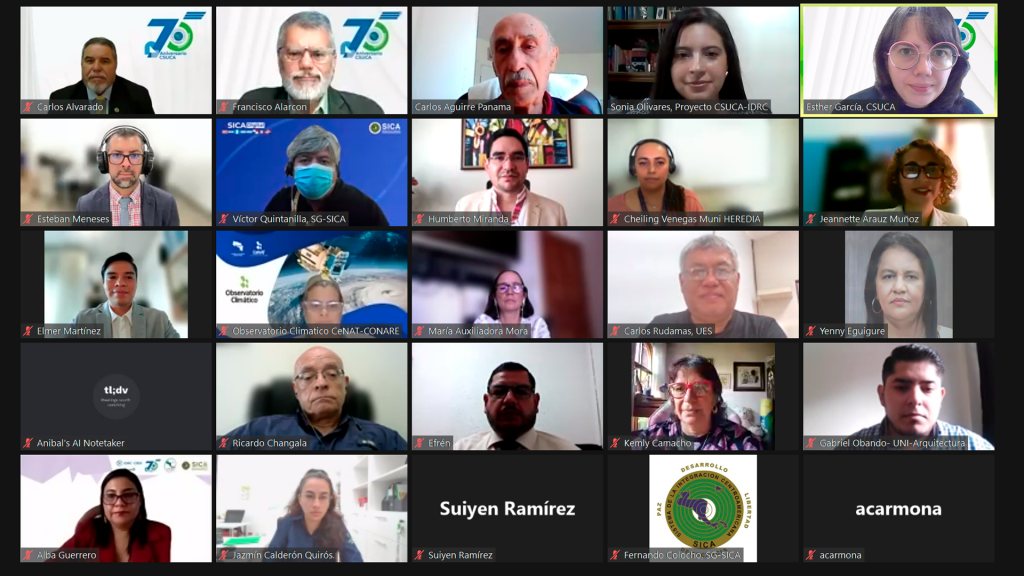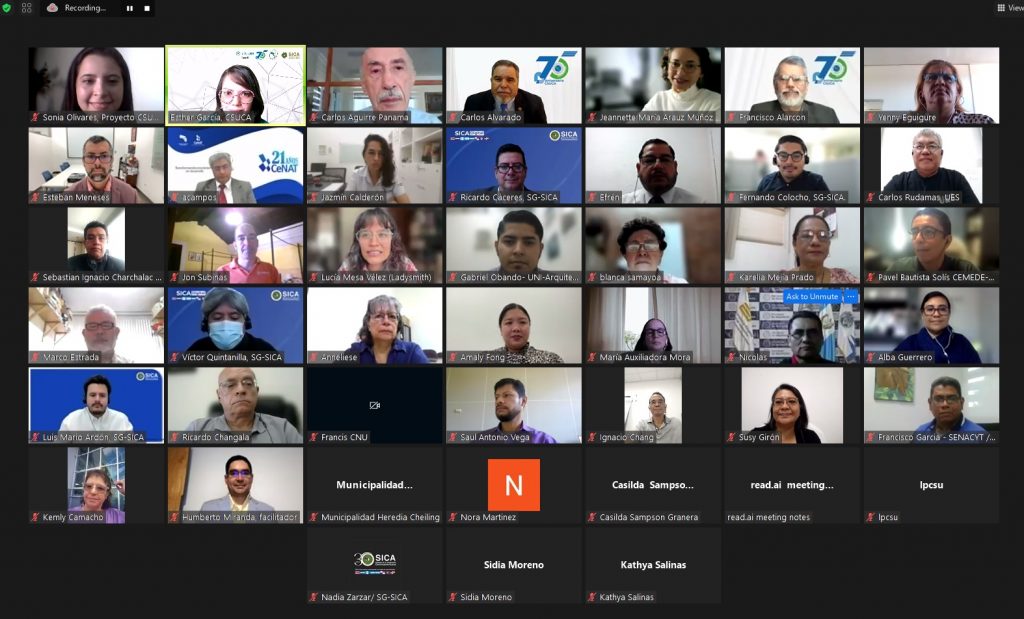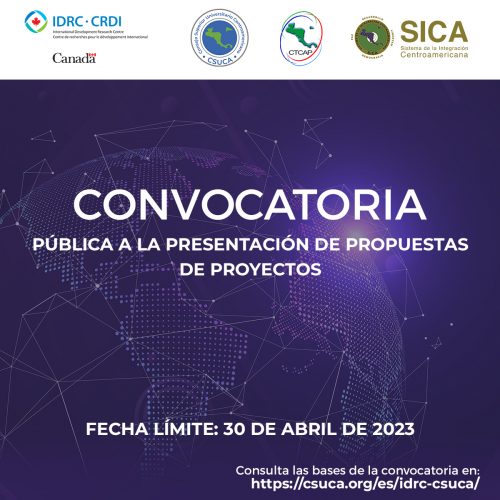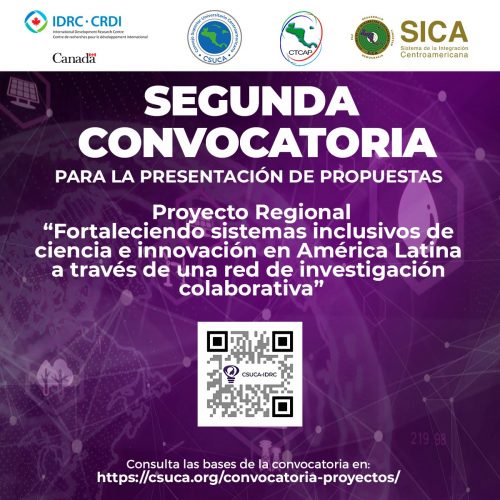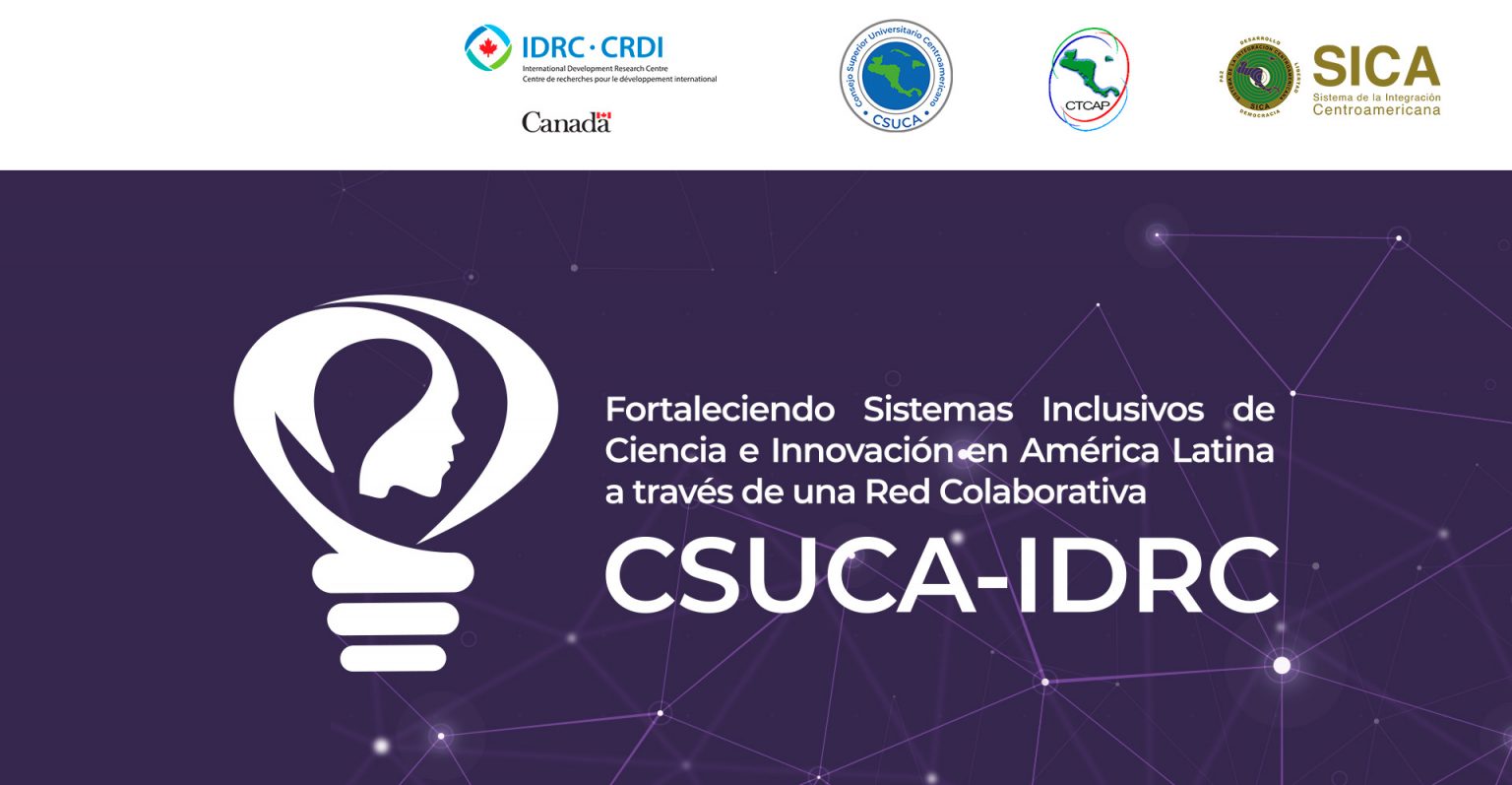
Proyecto: Fortaleciendo sistemas inclusivos de ciencia e innovación en América Latina a través de una red de investigación colaborativa
Centroamérica enfrenta un conjunto de desafíos complejos que limitan su desarrollo económico, sostenible e inclusivo. La exclusión social constituye uno de esos desafíos.
El concepto de exclusión ha sido utilizado para referirse a condiciones de pobreza e inequidad; sin embargo, la antinomia inclusión-exclusión no solo se refiere a la pobreza, sino también a la existencia o ausencia de vínculos sociales. De esta manera, el concepto debe ser considerado como aquel que incluye los derechos de las personas a un nivel razonable de bienestar social y material, así como a los derechos sociales y ciudadanos, que a su vez incluyen la igualdad de género y la igualdad de oportunidades para las poblaciones vulnerables como las comunidades rurales, indígenas y afrodescendientes. Este reconocimiento no solo tiene un impacto positivo sobre el bienestar social, también conduce a un sistema económico que es más apto al aprendizaje, la innovación, y una mayor productividad.
En el contexto anterior, el Proyecto “Fortaleciendo sistemas inclusivos de ciencia e innovación en América Latina a través de una red de investigación colaborativa” está destinado a constituirse en un elemento fundamental que contribuya a fortalecer el proceso de inclusión requerido por las sociedades centroamericanas. El Proyecto considera que sus resultados aportarán soluciones a la urgente necesidad de mejorar el proceso de inclusión en beneficio de los grupos vulnerables, mediante la producción de conocimiento generado por las comunidades científicas y otros actores no científicos de la región.
Considerando este marco general, el Proyecto tiene como propósito principal fortalecer, mediante la cooperación y el intercambio el nexo investigación – innovación – inclusión, in its two complementary aspects:
1. Investigación – Innovación para la inclusión cuando el foco son los resultados del proceso.
2. La investigación e innovación inclusiva cuando ésta se refiere a un proceso participativo mediante el cual la investigación y la innovación emergen.
El Proyecto, que tendrá una duración de cinco años, está financiado por el Centro Internacional de Investigaciones para el Desarrollo de Canadá (IDRC por sus siglas en Inglés), y ejecutado bajo un Convenio de Subvención con el Consejo Superior Universitario Centroamericano (CSUCA), con el apoyo de la Secretaria General del Sistema de la Integración Centroamericana (SG-SICA), la Comisión para el Desarrollo Científico y Tecnológico de Centroamérica y Panamá (CTCAP) y los organismos nacionales de ciencia, tecnología e innovación de los 8 países miembros del SICA.
El Proyecto, mediante dos convocatorias públicas, invitará a la presentación de propuestas de proyectos que orienten sus esfuerzos a la conformación y apoyo de consorcios o redes colaborativas; que permitan a través de su trabajo conjunto aportar soluciones viables a los problemas que enfrentan los grupos más vulnerables de la población regional centroamericana: pueblos indígenas, campesinos, afrodescendientes, mujeres, personas con discapacidad y las juventudes de los países miembros del SICA. En Proyecto contempla la posibilidad de participación complementaria de instituciones de otros países de América Latina y el Caribe, que pertenezcan al sector público y/o privado.
El Proyecto contempla también la ejecución de estudios sobre las cuestiones género y financiamiento de la investigación, ciencia, tecnología e innovación en la región y la ejecución de un diplomado en materia de ciencia abierta.
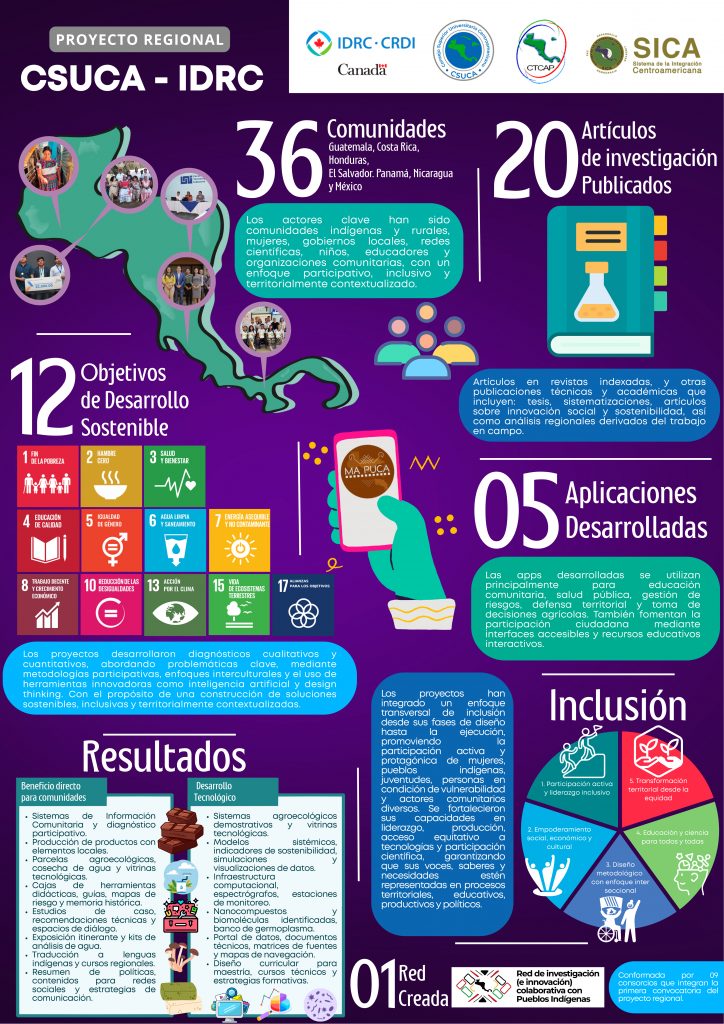
PROJECTS
Primera Convocatoria
Eje Temático: Transformación digital, automatización, inteligencia artificial
Herramientas para la defensa del territorio de comunidades indígenas en Costa Rica, Honduras y Guatemala. Conocer más
Innovación Tecnológica, Inclusión Social y Gestión Ambiental para la identificación de variables de desarrollo sostenible comunitario en Centroamérica Conocer más
Validación multicéntrica de una aplicación de Inteligencia Artificial, desarrollada por Guatemala, El Salvador y Honduras, para la identificación de parásitos intestinales Conocer más
Eje Temático: Crecimiento económico, productividad, competitividad y desarrollo sostenible
Fortalecimiento de la gestión del riesgo en sistemas agroalimentario que contribuye a la seguridad alimentaria y nutricional para enfrentar la variabilidad climática del corredor seco de Guatemala, El Salvador y Honduras 2023-2024. Conocer más
Hacia una gestión SMART y Sostenible del agua en comunidades de Centroamérica, a través de investigación y educación innovadora e inclusiva (Gestión SMART-S del Agua). Conocer más
Fortalecimiento de las condiciones económicas de la mujer indígena de Honduras, Guatemala y El Salvador en el marco de segundo Objetivo de Desarrollo Sostenible: Hambre Cero Conocer más
Use of carao, teosinte and mangosteen for the development of functional foods as a food and nutritional security strategy for Honduras, El Salvador and Guatemala Conocer más
Eje Temático: Territorio, gestión del riesgo y desarrollo local
Consolidación de la Red Centroamericana de Investigación en Extensión Crítica (RECIEC), Etapa II. Conocer más
Consolidación de la Red Centroamericana de Innovación e Investigación para el Acceso Justo al Hábitat y la Comprensión de las Arquitecturas Metropolitanas. Diálogos horizontales, inclusivos y colaborativos entre Áreas Metropolitanas de Nicaragua, El Salvador, Guatemala y México. Conocer más
Conocimiento Ecológico Tradicional para la Seguridad Alimentaria y Nutricional: Innovación y Conservación. Conocer más
Desarrollo local territorial para un crecimiento económico equitativo y sostenible en Guatemala, El Salvador, Costa Rica y Panamá Conocer más
Eje Temático: Ciencia de datos, cambio climático y gestión ambiental
Consorcio para el desarrollo de investigación innovadora e inclusiva en problemas relacionados al cambio climático y energías renovables en Centroamérica y República Dominicana.Conocer más
Fortalecimiento de las competencias ambientales en las comunidades a través de la innovación tecnológica y metodológica para impulsar la resiliencia en la Gestión del Riesgo a Desastres y el Cambio Climático en el cantón de Heredia, Costa Rica, del distrito de Almirante, de Bocas del Toro, Panamá y de la comunidad indígena Achí de Rabinal del departamento de Baja Verapaz, Guatemala. Conocer más
Consorcio Centroamericano de Computación de Alto Rendimiento para Aplicaciones Socio-ambientales: hacia la inclusión en ciencia de mujeres y grupos originarios de la región. Conocer más
La equidad en una transición justa. Promoviendo la participación de la región centroamericana en los informes del IPCC “Red Centroamericana sobre Cambio Climático”. (RC4) Conocer más
Implementación de una red de investigación apoyada en ciencias de datos que empodere e inspire a mujeres a desarrollar capacidades para contribuir a la conservación de la biodiversidad. Conocer más
DOCUMENTOS DE INTERÉS
NEWS
